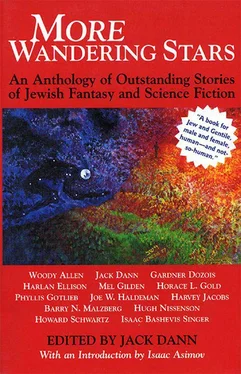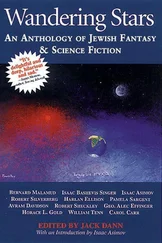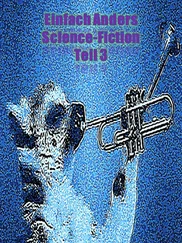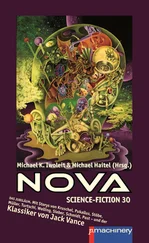“Hey, you,” shouted a guard. “Take the one on the ground to the cart.”
Stephen nodded to the guard and began to drag the Musselmann away.
“Who’s the new patient down the hall?” Stephen asks as he eats a bit of cereal from the breakfast tray Josie has placed before him. He is feeling much better now; his fever is down and the tubes, catheter, and intravenous needle have been removed. He can even walk around a bit.
“How did you find out about that?” Josie asks.
“You were talking to Mr. Gregory’s nurse. Do you think I’m dead already? I can still hear.”
Josie laughs and takes a sip of Stephen’s tea. “You’re far from dead! In fact, today is a red-letter day, you’re going to take your first shower. What do you think about that?”
“I’m not well enough yet,” he says, worried that he will have to leave the hospital before he is ready.
“Well, Dr. Volk thinks differently, and his word is law.”
“Tell me about the new patient.”
“They brought in a man last night who drank two quarts of motor oil; he’s on the dialysis machine.”
“Will he make it?”
“No, I don’t think so; there’s too much poison in his system.”
We should all die, Stephen thinks. It would be an act of mercy. He glimpses the camp.
“Stephen!”
He jumps, then awakens.
“You’ve had a good night’s sleep, you don’t need to nap. Let’s get you into that shower and have it done with.” Josie pushes the traytable away from the bed. “Come on, I have your bathrobe right here.”
Stephen puts on his bathrobe, and they walk down the hall to the showers. There are three empty shower stalls, a bench, and a whirlpool bath. As Stephen takes off his bathrobe, Josie adjusts the water pressure and temperature in the corner stall.
“What’s the matter?” Stephen asks after stepping into the shower. Josie stands in front of the shower stall and holds his towel, but she will not look at him. “Come on,” he says, “you’ve seen me naked before.”
“That was different.”
“How?” He touches a hard, ugly scab that has formed over one of the wounds on his abdomen.
“When you were very sick, I washed you in bed as if you were a baby. Now it’s different.” She looks down at the wet tile floor as if she is lost in thought.
“Well, I think it’s silly,” he says. “Come on, it’s hard to talk to someone who’s looking the other way. I could break my neck in here and you’d be staring down at the fucking floor.”
“I’ve asked you not to use that word,” she says in a very low voice.
“Do my eyes still look yellowish?”
She looks directly at his face and says, “No, they look fine.”
Stephen suddenly feels faint, then nauseated; he has been standing too long. As he leans against the cold shower wall, he remembers his last dream. He is back in the quarry. He can smell the perspiration of the men around him, feel the sun baking him, draining his strength. It is so bright….
He finds himself sitting on the bench and staring at the light on the opposite wall. I’ve got typhus, he thinks, then realizes that he is in the hospital. Josie is beside him.
“I’m sorry,” he says.
“I shouldn’t have let you stand so long; it was my fault.”
“I remembered another dream.” He begins to shake, and Josie puts her arms around him.
“It’s all right now; tell Josie about your dream.”
She’s an old, fat woman, Stephen thinks. As he describes the dream, his shaking subsides.
“Do you know the man’s name?” Josie asks. “The one the guard ordered you to drag away.”
“No,” Stephen says. “He was a Musselmann, yet I thought there was something familiar about him. In my dream I remembered the photograph you showed me. He was in it.”
“What will happen to him?”
“The guards will give him to the doctors for experimentation. If they don’t want him, he’ll be gassed ”
“You must not let that happen,” Josie says, holding him tightly.
“Why?” asks Stephen, afraid that he will fall into the dreams again.
“If he was one of the men you saw in the photograph, you must not let him die. Your dreams must fit the past.”
“I’m afraid.”
“It will be all right, baby,” Josie says, clinging to him. She is shaking and breathing heavily.
Stephen feels himself getting an erection. He calms her, presses his face against hers, and touches her breasts. She tells him to stop but does not push him away.
“I love you,” he says as he slips his hand under her starched skirt. He feels awkward and foolish and warm.
“This is wrong,” she whispers.
As Stephen kisses her and feels her thick tongue in his mouth, he begins to dream….
Stephen stopped to rest for a few seconds. The Musselmann was dead weight. I cannot go on, Stephen thought, but he bent down, grabbed the Musselmann by his coat, and dragged him toward the cart. He glimpsed the cart, which was filled with the sick and dead and exhausted; it looked no different than a cartload of corpses marked for a mass grave.
A long, gray cloud covered the sun, then passed, drawing shadows across gutted hills.
On impulse, Stephen dragged the Musselmann into a gully behind several chalky rocks. Why am I doing this? he asked himself. If I’m caught, I’ll be ash in the ovens too. He remembered what Viktor had told him: “You must think of yourself all the time or you’ll be no help to anyone else.”
The Musselmann groaned, then raised his arm. His face was gray with dust and his eyes were glazed.
“You must lie still,” Stephen whispered. “Do not make a sound. I’ve hidden you from the guards, but if they hear you, we’ll all be punished. One sound from you and you’re dead. You must fight to live; you’re in a death camp; you must fight so you can tell of this later.”
“I have no family, they’re all—”
Stephen clapped his hand over the man’s mouth and whispered, “Fight, don’t talk. Wake up; you cannot survive the death camp by sleeping.”
The man nodded, and Stephen climbed out of the gully. He helped two men carry a large stone to a nearby cart.
“What are you doing?” shouted a guard.
“I left my place to help these men with this stone; now I’ll go back where I was.”
“What the hell are you trying to do?” Viktor asked.
Stephen felt as if he was burning up with fever. He wiped the sweat from his eyes, but everything was still blurry.
“You’re sick, too. You’ll be lucky if you last the day.”
“I’ll last,” Stephen said, “but I want you to help me get him back to the camp.”
“I won’t risk it, not for a Musselmann. He’s already dead; leave him.”
“Like you left me?”
Before the guards could take notice, they began to work. Although Viktor was older than Stephen, he was stronger. He worked hard every day and never caught the diseases that daily reduced the barrack’s numbers. Stephen had a touch of death, as Viktor called it, and was often sick.
They worked until dusk, when the sun’s oblique rays caught the dust from the quarries and turned it into veils and scrims. Even the guards sensed that this was a quiet time, for they would congregate together and talk in hushed voices.
“Come, now, help me,” Stephen whispered to Viktor.
“I’ve been doing that all day,” Viktor said. “I’ll have enough trouble getting you back to the camp, much less carry this Musselmann.”
“We can’t leave him.”
“Why are you so preoccupied with this Musselmann? Even if we can get him back to the camp, his chances are nothing. I know—I’ve seen enough—I know who has a chance to survive.”
“You’re wrong this time,” Stephen said. He was dizzy and it was difficult to stand. The odds are I won’t last the night, and Viktor knows it, he told himself. “I had a dream that if this man dies, I’ll die too. I just feel it.”
Читать дальше












